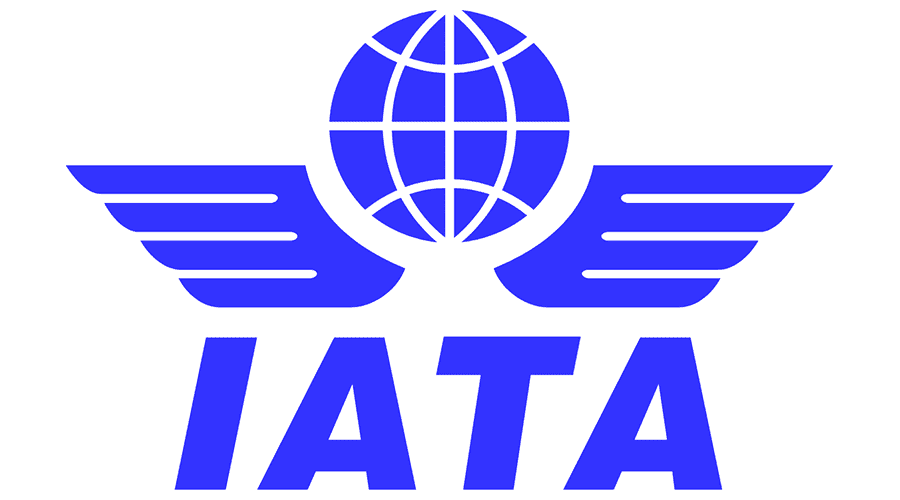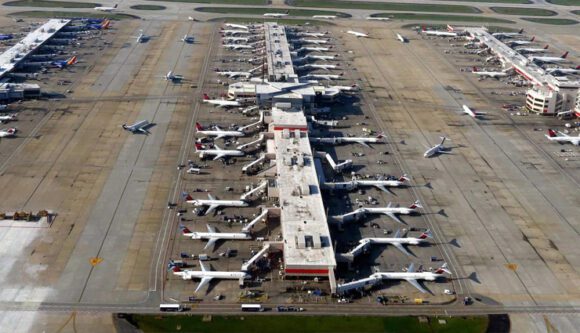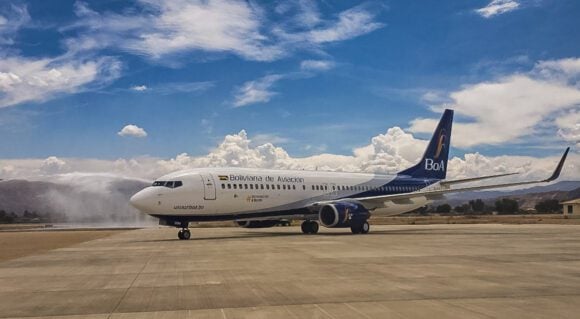
iata logo 1
The International Air Transport Association (IATA) again singled out Airport Company of South Africa and Ethiopia’s Air Navigation Service Providers (ANSP) among examples of infrastructure service providers looking to hike their fees to recoup lost revenues. Air traffic management (ATM) provided by air navigation service providers (ANSPs) is the invisible part of the air transport value chain but it is the essential enabler for the air transport system.
The Director-General of IATA, Willie Walsh, warned that planned increases in charges by airports and air navigation service providers (ANSPs) will stall recovery in air travel and damage international connectivity. Airports Company of South Africa (ACSA) is asking to increase charges by 38 percent in 2022 while Ethiopian ANSP is raising charges by 35 percent in 2021. In Nigeria, the Airspace Management Agency (NAMA) is the sole Air Navigation Service Provider (ANSP) but it is not known how much the agency charges for its services.
By way of context, Amsterdam Schiphol Airport Is requesting to increase charges by over 40 percent over the next three years; Heathrow Airport is pushing increase charges by over 90% in 2022, and NavCanada is increasing charges by 30% over five years. Walsh said last week that while Heathrow and Schiphol have reduced their increases, now is not the time to burden airlines with costs. Airport and ANSPs should cover them by calling governments for help by providing loans, said Walsh, who made identical at IATA’s Annual General Meeting in September.
Peer review
The Managing Director of NAMA, Capt. Fola Akinkuotu recently said only an effective peer review of safety systems and procedures among ANSPs in the region could enable Africa to build upon its rising safety profile and make the continent more competitive in the global aviation industry. He said the time had come for African ANSPs to harmonize and synergize their safety systems and procedures by bringing members up to speed with industry best practices with the ultimate goal of achieving a single African sky.
ANSP charges skyrockets
The ANSP charges have already reached $2.3 billion. Walsh warned that further increases could be ten-fold this number if proposals already tabled by airports and ANSPs are granted. “A $2.3 billion charge increase during this crisis is outrageous. We all want to put COVID-19 behind us. But placing the financial burden of a crisis of apocalyptic proportions on the backs of your customers, just because you can, is a commercial strategy that only a monopoly could dream up. At an absolute minimum, cost reduction—not charges increases—must be top of the agenda for every airport and ANSP. It is for their customer airlines,” said Walsh.
A case in point is European air navigation service providers. Collectively, ANSPs of the 29 Eurocontrol states, the majority of which are state-owned, are looking to recoup almost $9.3 billion (€8 billion) from airlines to cover revenues not realized in 2020/2021. They want to do this to recover the revenue and profits they missed when airlines were unable to fly during the pandemic. Moreover, they want to do this in addition to a 40% increase planned for 2022 alone.
“Today I am ringing the alarm. This must stop if the industry is to have a fair opportunity at recovery. Infrastructure shareholders, governmental or private, have benefited from stable returns pre-crisis. They must now play their part in the recovery. It is unacceptable behavior to benefit from your customers during good times and stick it to them in bad times. Doing so has broad implications. Air transport is critical to support economic recovery post-pandemic. We should not compromise the recovery with the irresponsibility and greed of some of our partners who have not addressed costs or tapped their shareholders for support,” Walsh said.
Understanding the danger
Some regulators already understand the danger posed by the behavior of infrastructure providers. Regulators in India and Spain successfully intervened on the increases proposed by airports. They provide an example for other regulators to follow. The Australian Competition & Consumer Commission¹ warned in their recently published report that increasing charges to recover lost profits from the pandemic demonstrate airports systematically taking advantage of their market power, damaging the vulnerable airline sector’s ability to recover at the expense of both consumers and the economy.
Walsh reiterated that airlines undertook drastic cost-cutting from the outset of the pandemic, reducing operating costs by 35% compared to pre-crisis levels, stressing that this was supported by increased commercial borrowing and shareholder contributions. Airlines also sought government aid, the majority of which was in the form of loans that need to be paid back. Of the $243 billion that was made available to airlines, $81 billion supported payrolls, and approximately $110 billion was in support that needs to be paid back. As a result, airlines have amassed a huge debt burden of over $650 billion. Any defaults could result in airline failures and the loss of tens of thousands of jobs.
IATA urges airports and ANSPs to apply solutions to address the financial impact of the pandemic including implementing sustainable cost control measures, tapping shareholders, accessing capital markets, and seeking government aid.
Views: 3



